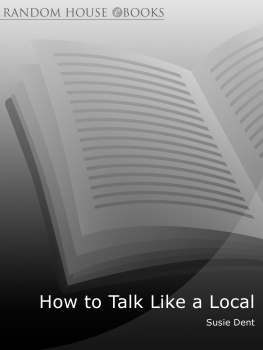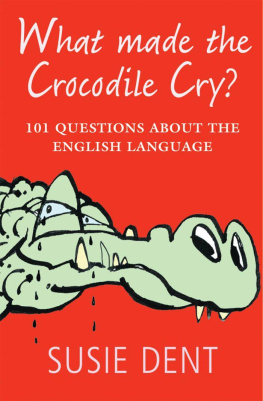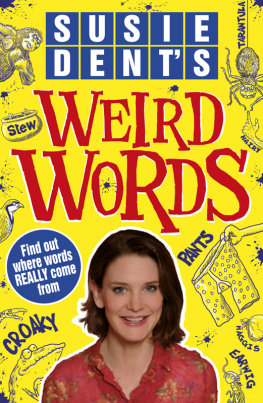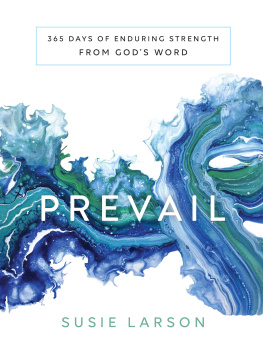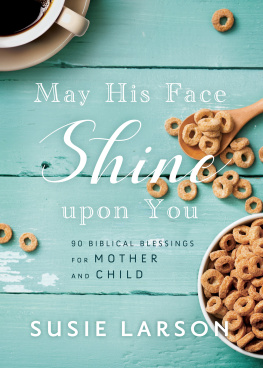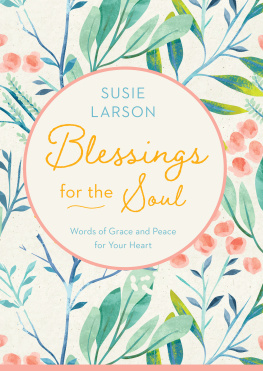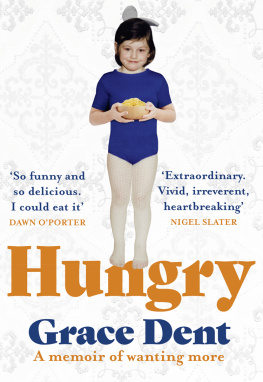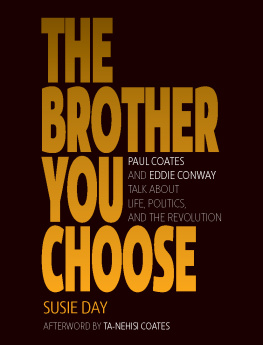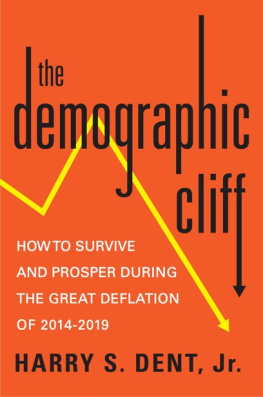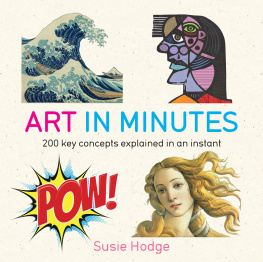Susie Dent - Word Perfect
Here you can read online Susie Dent - Word Perfect full text of the book (entire story) in english for free. Download pdf and epub, get meaning, cover and reviews about this ebook. year: 2020, publisher: Hodder and Stoughton, genre: Home and family. Description of the work, (preface) as well as reviews are available. Best literature library LitArk.com created for fans of good reading and offers a wide selection of genres:
Romance novel
Science fiction
Adventure
Detective
Science
History
Home and family
Prose
Art
Politics
Computer
Non-fiction
Religion
Business
Children
Humor
Choose a favorite category and find really read worthwhile books. Enjoy immersion in the world of imagination, feel the emotions of the characters or learn something new for yourself, make an fascinating discovery.
- Book:Word Perfect
- Author:
- Publisher:Hodder and Stoughton
- Genre:
- Year:2020
- Rating:4 / 5
- Favourites:Add to favourites
- Your mark:
- 80
- 1
- 2
- 3
- 4
- 5
Word Perfect: summary, description and annotation
We offer to read an annotation, description, summary or preface (depends on what the author of the book "Word Perfect" wrote himself). If you haven't found the necessary information about the book — write in the comments, we will try to find it.
Word Perfect — read online for free the complete book (whole text) full work
Below is the text of the book, divided by pages. System saving the place of the last page read, allows you to conveniently read the book "Word Perfect" online for free, without having to search again every time where you left off. Put a bookmark, and you can go to the page where you finished reading at any time.
Font size:
Interval:
Bookmark:

CONTENTS
Susie Dent is the resident word expert in Dictionary Corner on C4s Countdown and 8 Out of 10 Cats Does Countdown, has been on every programme about words: 15 x 15, Word of Mouth, More or Less; and is a regular panellist on R4s Wordaholics. Susie also writes a weekly column for the Radio Times, reviews for The Spectator and has over 86,000 followers on Twitter. This is the book she has always wanted to write.
Dents Modern Tribes
Susie Dents Weird Words
How to Talk Like a Local
What Made the Crocodile Cry?


www.johnmurraypress.co.uk
First published in Great Britain in 2020 by John Murray (Publishers)
An Hachette UK company
Copyright Susie Dent 2020
The right of Susie Dent to be identified as the Author of the Work has been asserted by her in accordance with the Copyright, Designs and Patents Act 1988.
Cover illustration Ginger Monkey
All rights reserved.
No part of this publication may be reproduced, stored in a retrieval system, or transmitted, in any form or by any means without the prior written permission of the publisher, nor be otherwise circulated in any form of binding or cover other than that in which it is published and without a similar condition being imposed on the subsequent purchaser.
A CIP catalogue record for this title is available from the British Library
eBook ISBN 978 1 529 31150 1
John Murray (Publishers)
Carmelite House
50 Victoria Embankment
London EC4Y 0DZ
www.johnmurraypress.co.uk
For Thea and Lucy, my raisons d tre
It is reasonable to have perfection in our eye that we may always advance toward it, though we know it can never be reached. Samuel Johnson
Twenty-eight years ago I sat, rigid with fear, in Dictionary Corner for the first time, waiting for the cameras to turn to me. A newly fledged dictionary editor at Oxford University Press, I was a reluctant addition to the Countdown team, having resisted my bosss suggestion that I audition on at least three occasions. I am happiest when flying below the radar, and appearances on TV were clearly not on my wish list. But there I was, hiding behind Rula Lenskas glorious fox-red mane, trying desperately to look as though I knew what I was doing. I didnt, but somehow I got by that first afternoon, and that corner is now my second home. Most of all, the dictionary in front of me has become my greatest friend.
Perhaps it was always meant to be this way. I have been a linguistic magpie for as long as I can remember. These compelling birds, whose collective noun is the ominous tiding, have had a bad rap over the years. Whether lone harbingers of doom, or swooping thieves of chicks and jewellery, their dark reputation brings even the soberest amongst us to a shudder (or salute) in their presence. In the seventeenth century, magpie was a metaphor for an idler or impertinent chatterer, and by the twentieth the epithet had attached itself to one who collects or hoards indiscriminately: as one dictionary put it, a petty pilferer. That is surely an apt description of what I do, for I have collected odds and ends of language for my whole life.
I was always the one who, during family dinnertime chats, would be entirely lost in the ingredients on the back of a ketchup bottle. It was the same story for shampoo, on whose magical labels the swirling characters of French, Greek, Arabic and Cyrillic beckoned like the exotic jewels a magpie might smuggle away. No text was off limits aeroplane safety instructions would be pored over, sometimes for an entire flight. It was there, squished between my parents, that I longed to know the difference between flammable and inflammable, or to prove a possible link between monster and demonstrate (one of my many cul-de-sacs, as it happens, as there is no link, but even as I type this I am enjoying the fact that a cul-de-sac means bottom of the sack).
It was from earning pocket money posting pamphlets through letterboxes that I learned that the word pamphlet was born not out of tedious bumf, but in a racy tale from the twelfth century, whose ardent hero was a relentless seducer named Pamphilus. His pursuits, devoured by the masses, were reprinted in little booklets or pamphilets, little Pamphiluses. That bumf, by the way, before it became a byword for throwaway material, is short for the bumfodder that once wiped the bottoms of military personnel.
And so they went on, the petty pilferings from hundreds of mundane encounters that to me were anything but. I would file them away in my head and eventually, in the only black book that interested me marvelling in the simple shape of a word or musing over its origin. I would hoover up the new and unfamiliar, trying out a potential word from Countdown s random letter selection and rejoicing when it was confirmed by the dictionary. These moments were the start of a linguistic adventure that has never come to an end.
Word Perfect might seem a strange choice of title. Like all lexicographers in the modern age, I sit very far from linguistic pedantry. I am, as John Humphrys once called me, one of those hippie chicks of English. No modern dictionary-maker can afford to be prescriptive; rather we describe language as it is used, with its myriad meanings and contexts, and all its creases and crumples. A linguists job is to map this evolving landscape, and to chart the journeys of words whose lifetimes will far exceed our own. We are, as Samuel Johnson beautifully described it, always chasing the sun. For me, perfection is not a single moment in time when everything aligns and we are faultless, nor is it a finished state accomplished by rote. Instead I choose again Johnsons description we keep it in our eye as we head towards it, knowing we will never quite catch up, but basking in that sun all the while.
I also like a definition from earlier times, when perfection conveyed maturity, ripeness, and full bloom. It is entirely fitting that the metaphors of trees and flowers have wrapped themselves around our language, from the anthology once a posy of flowers to the book, which comes from the Old English for beech. Not for nothing do lexicographers explore the roots of the words they define. Johann Wolfgang von Goethe is said to have compared French to a country park, German to a dense forest, and English to a pretty garden. For all my love of German (and its a deep love), English is so much more than that. If it is a garden, it is as full of thorns as roses, as gnarly as the bark of an old oak, and as mazy as a medieval labyrinth. It is also evergreen: locked away for weeks during the coronavirus, the dictionary was where I took my solace.
There was, for example, comfort in viewing our imposed quarantine through the filter of earlier times, when ships arriving in Venice at the peak of the Black Death were required to anchor for forty ( quaranta ) days of isolation. Ugsome lockdown days and nights were brightened by such rediscoveries as respair, an all-too-rare word for a recovery from despair, or the simple knowledge that chortle was Lewis Carrolls blend of chuckle and snort (how we long to chortle again). Such were the things that sparkled in the darkness.
Font size:
Interval:
Bookmark:
Similar books «Word Perfect»
Look at similar books to Word Perfect. We have selected literature similar in name and meaning in the hope of providing readers with more options to find new, interesting, not yet read works.
Discussion, reviews of the book Word Perfect and just readers' own opinions. Leave your comments, write what you think about the work, its meaning or the main characters. Specify what exactly you liked and what you didn't like, and why you think so.


